Objective
Waycott et al. (2009) reported 110km2 of seagrass bed has been disappeared annually worldwide. Grench et al. (2012) pointed out that seagrasses in Temperate North Pacific region, which includes NOWPAP region, had a highest vulnerability score among the other regions and three major threats were landfill by urbanization and port development, rise of sea water temperature and rive of sea level. However, the assessment result by Grench et al.(2009) do not have enough information and/or data in the NOWPAP region.
Thus, CEARAC started review of literatures on seagrass distribution and threats to seagrass in cooperation with researchers in China, Japan, Korea and Russia. Collected information on literatures was then categorized by location of seagrass (latitude and longitude), seagrass species, cause of loss and so on and visualized on a webGIS map on this website.
Researchers cooperated in literature review on seagrass distribution
- China:Dr. Yang Dingtian (State Key Laboratory of Tropical Ocean Environment Chinese Academy of Sciences)
- Japan:Dr. Teruhisa Komatsu (Yokohama College of Commerce)
- Korea:Dr. Jong-Kuk Choi, Dr. Keunyong Kim (Korea Institute of Ocean Science & Technology, Korea Ocean Satellite Center)
- Russia:Dr. Vasily Zharikov (Pacific Geographical Institute of the Far Eastern Branch of the Russian Academy of Sciences)
Method used to visualize seagrass distribution
Each icon is plotted in the area where seagrass is recognized/observed. Three icons (A, B and C) indicate different types of seagrass. Distribution size is shown by different sizes of ‘○’ and the numbers, by which spatial distribution of seagrass can be understood.
| Zostera marina | 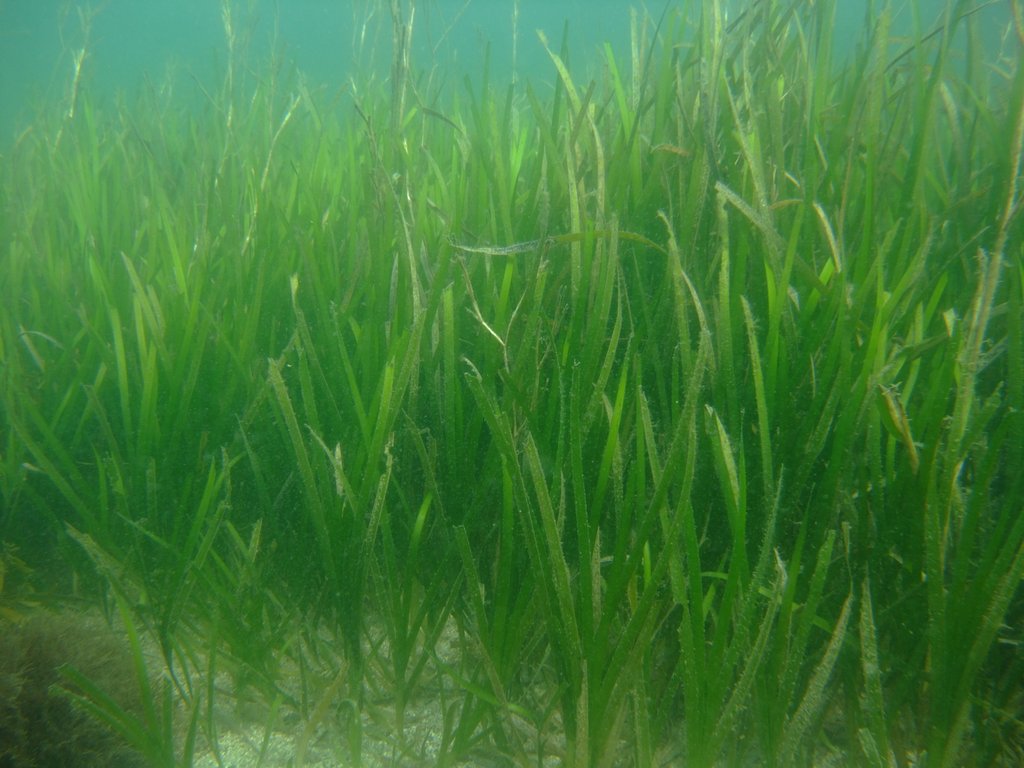 |
| Zostera japonica | 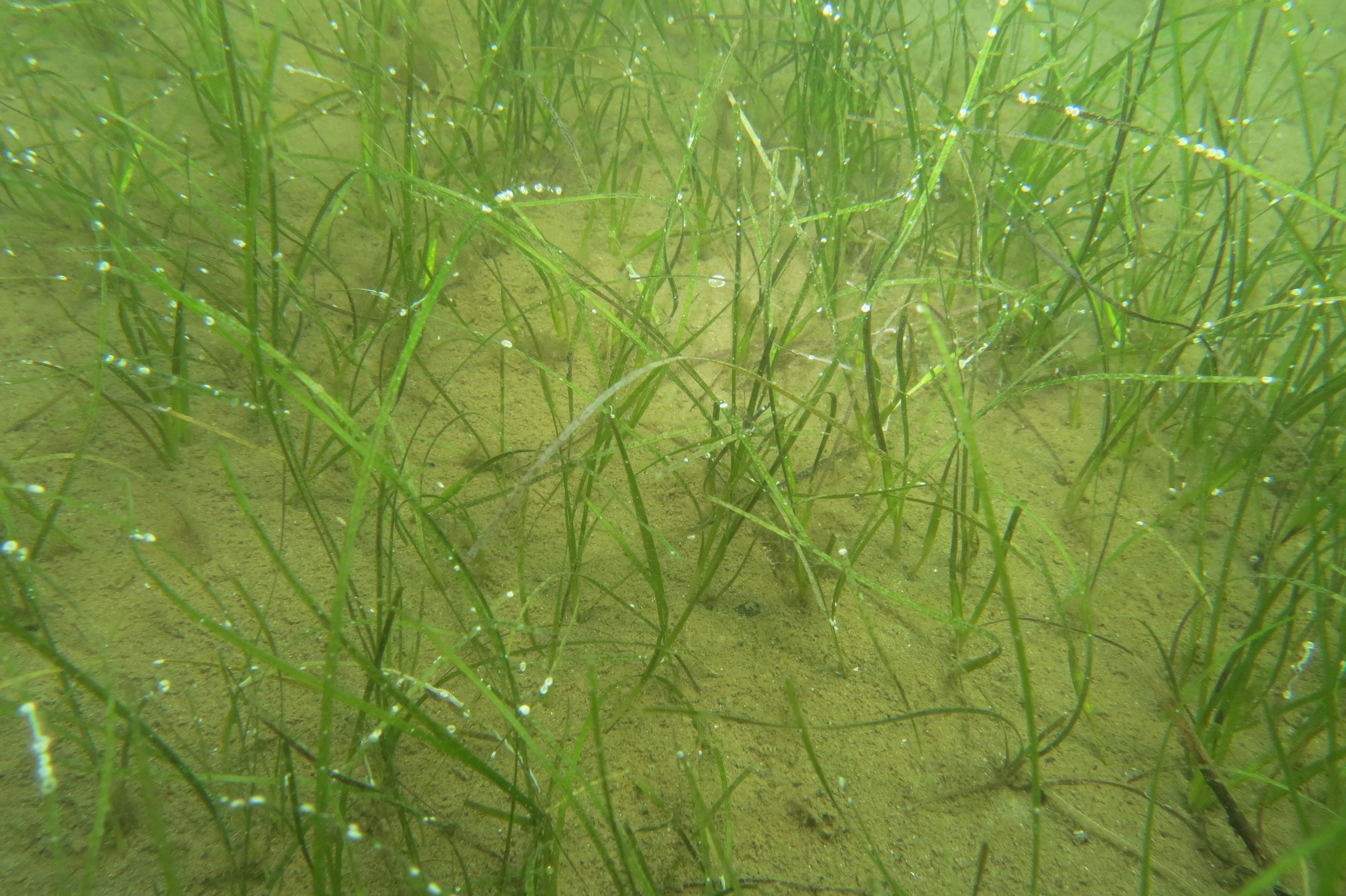 |
| Zostera caespitosa | No image available |
| Zostera asiatica | 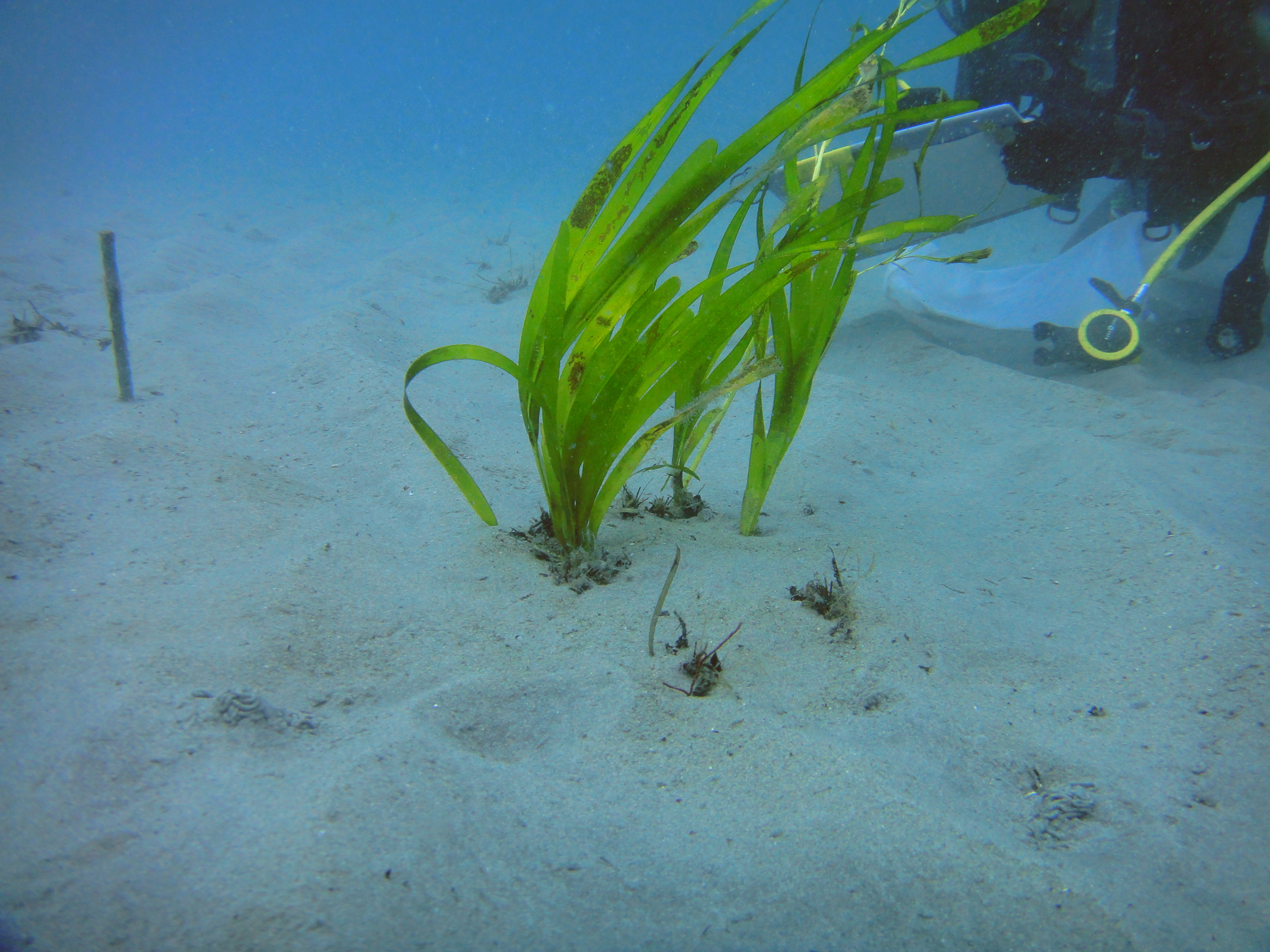 |
| Zostera caulescens | 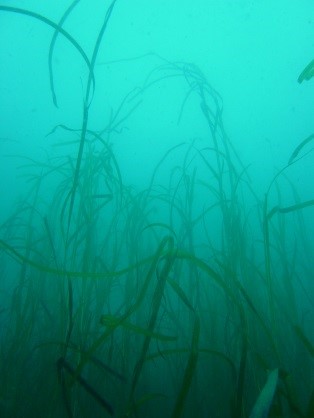 |
| Halodule uninervis | No image available |
| Phyllospadix iwatensis | No image available |
| Phyllospadix japonicus | No image available |
| Halophila ovalis | 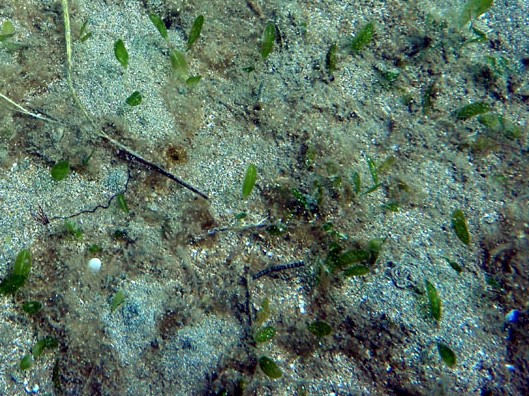 |
| Halophila nipponica | No image available |
Reference materials
- Report on the feasibility study towards assessment of seagrass distribution in the NOWPAP region( http://cearac.nowpap.org/fpm/meeting_report/15/Annex07.pdf )